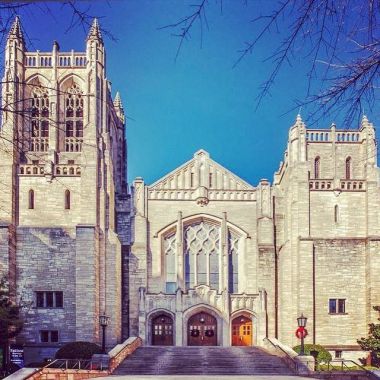Religious 'nones' aren't as anti-church as we might think

Despite studies revealing that Christianity in America is in decline, new research shows that the majority of those who don't identify with any faith are still open to church.
According to the results of a survey by LifeWay, many Americans are receptive to church, even those with no religious affiliation – the 'nones'. When asked whether they agreed with the following statement regarding denominations, "When I see a church named the following, I assume it's not for me", fewer than half of all respondents, religious or otherwise, agreed.
The majority were favourable to all nine denominations – Pentecostal, Catholic, Lutheran, Assemblies of God, Methodist, Presbyterian, Southern Baptist, Non-Denominational and Baptist.
In total, between a third and a half of those who didn't identify with a Christian faith did not assume that the nine denominations are "not for me".
"Just because someone has no religious preference does not mean they have closed the door to the Christian church or a denomination as being something that can meet needs in their lives," LifeWay Research vice-president Scott McConnell explained.
"One might assume that when someone makes a conscious decision in favor of a certain religious preference, that means 'no' to everything else," he added. "While many are not open, to see half of the 'nones' and a third of those in other religions indicate they are not closed to Christian churches makes us re-think that."
When respondents were asked about their impression of each faith group, the Baptists came top, with a 61 per cent 'favourable' rating. In second place were the Catholics, with 57 per cent., followed by non-denominational Christians. The Pentecostal Church fared the worst, with just over a third (38 per cent) giving them a favourable rating.
However, the research showed that the highest group of those who said they were more wary of church were young adults. More than four in ten of those aged 18-24 said various denominations were not for them.
"While young adults are often testing their views as they enter their 20s, about half do not perceive Catholic, Methodist, Presbyterian, Pentecostal, Lutheran or non-denominational churches as places for them as they explore," McConnell said.
This data supports a report released last week that found that teens and young adults are both less religious and less spiritual than previous generations.
A study compiled by experts including Jean Twenge of San Diego State University found that Millennials are less likely to say that religion is important in their lives and spend less time praying or meditating.
"American adolescents in the 2010s are significantly less religiously oriented, on average, than their Boomer and Generation X predecessors were at the same age," Twenge and her colleagues wrote in an article for the Plos One journal.
"Unlike previous studies, ours is able to show that Millennials' lower religious involvement is due to cultural change, not to Millennials being young and unsettled."
Another study produced by the Pew Research Center last month found that the number of Americans professing that they have 'no religion' has grown to 56 million. 'Nones' are therefore now the second largest group in the US, behind evangelicals.











